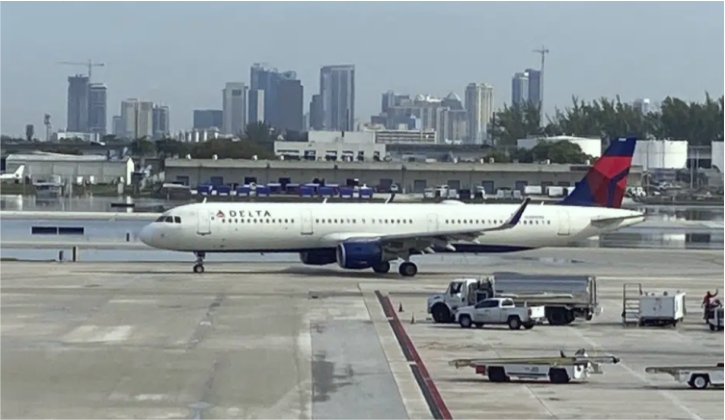

Fort Lauderdale-Hollywood International Airport has reopened after being shut down for almost two days due to severe flooding caused by a storm that dumped over two feet of rain in the area. On Friday morning, airport operations began returning to normal, but the closure still affected some passengers.
Passengers, including Baptist minister Michael Clement and his wife, Ariel, were left stranded when the airport closed. They were on their way to visit their son, a missionary in Brazil. The connecting flight they will catch in Brazil to Sao Gabriel is only scheduled twice a week, and the tickets cannot be exchanged. Other passengers were also affected, such as those planning to attend the three-day Tortuga Music Festival in Fort Lauderdale, leaving many ticket holders out of luck once the airport closed.
The closure led to the cancellation of over 650 flights at Fort Lauderdale airport on Thursday, according to FlightAware.com. Broward County Public Schools also canceled classes on Thursday and Friday due to water inundating halls and classrooms in some schools.
Shawn Bhatti, a meteorologist with the National Weather Service in Miami, said the region received “an unprecedented amount” of rain, with some gauges showing up to 25 inches of rainfall. He added that, “For context, within a six-hour period, the amount that fell is about a 1 in 1,000 chance of happening within a given year, so it’s a very historical type of event.”
The severe weather and flooding also affected residents in the Edgewood neighborhood, where water levels receded about a foot from Thursday, but were still up to two feet deep in some spots as residents tried to clean up. The area saw record rainfall amounts in a matter of hours ranging from 15 inches to 26 inches.
Residents in the hardest hit neighborhoods, such as Edgewood, began the slow process of cleaning up the mess left behind. Newlywed Tatiana Rodriguez and her husband, Joseph, a hotel worker from Colombia and a restaurant kitchen assistant from New York, respectively, had water rise inside their one-room rental, up to a foot above the floor. Their bridal tiara from their marriage last month is still hanging on the headboard of their bed. When the water started gushing into their home on Wednesday night, they went outside and found foot-high cinder blocks that they used to prop the bed up.
The storm was an unexpected event, causing chaos in the area. The reopening of the airport brings relief to many travelers who were left stranded by the closure. However, the aftermath of the flooding will take some time to clean up, and residents in the hardest-hit neighborhoods will continue to face challenges in the coming days.
As residents in the hardest-hit neighborhoods began the slow process of cleaning up, the local authorities and emergency services worked around the clock to restore normalcy. On Thursday, Florida Governor Ron DeSantis declared a state of emergency in the county, and on Friday, he announced that he would be visiting the area to assess the damage caused by the storm.
The Fort Lauderdale-Hollywood International Airport is a major hub for travelers heading to and from the Caribbean and South America. The airport serves over 36 million passengers a year and is a vital economic driver for the region. The two-day closure caused significant disruptions to the local economy, with estimates suggesting that the shutdown cost businesses in the area millions of dollars.
The flooding in Edgewood and other parts of Broward County is not an isolated incident. Climate scientists have long warned that South Florida is one of the regions most at risk from the impacts of climate change, such as rising sea levels and more frequent and intense storms. The state has experienced a series of extreme weather events in recent years, including hurricanes, heatwaves, and flooding.
As the region braces for the impacts of climate change, local authorities and residents are taking steps to mitigate its effects. The Broward County Commission recently approved a $500 million bond to fund infrastructure projects aimed at protecting the region from the impacts of climate change. The funds will be used to improve drainage systems, upgrade seawalls, and build new water storage facilities.
The flooding in Fort Lauderdale is a stark reminder of the urgent need to address the impacts of climate change. The storm that caused the flooding was not an isolated event, but rather part of a pattern of extreme weather events that are becoming more frequent and intense due to human-caused climate change. As the world continues to warm, it is crucial that we take bold and decisive action to reduce greenhouse gas emissions and transition to a cleaner, more sustainable energy system.
In the meantime, residents in Fort Lauderdale and other vulnerable communities must continue to adapt and prepare for the impacts of climate change. The flooding may have receded, but the damage caused by the storm will be felt for months, if not years, to come.